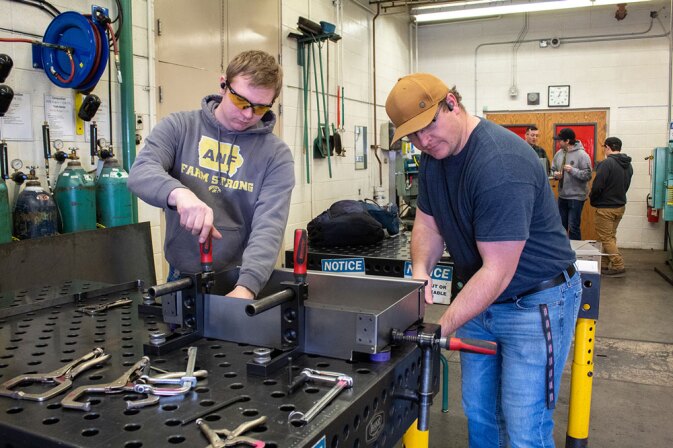
Forge Your Opportunity
Students will gain the knowledge they need to interpret and apply welding inspection procedures and code standards accurately. They will learn how to apply physical science and math laws to fundamental design and fabrication problems as they execute the correct welding process for a given application.
Students will learn and apply ethical principles in industry/business settings. They will design, model, and fabricate components using modern CAD/CAM software tools and appropriate manufacturing processes.
Students will learn and apply ethical principles in industry/business settings. They will design, model, and fabricate components using modern CAD/CAM software tools and appropriate manufacturing processes.
Highlighted Career Paths
Graduates with a degree in Welding and Fabrication Technology have a wide array of rewarding careers before them. Check out some of the top careers students get with this degree or explore more career options in I-Plan.
Quality Engineer
The quality engineer coordinates between multiple areas and directs the team members. They evaluate product/process change requests to ensure the quality is not compromised. Quality engineers evaluate, develop, and implement improvements. They compile and analyze data, and complete data collection, entry, and documentation. They supervise the execution of work within the shop activities (i.e., manage personnel, delegate tasks, and evaluate welds).
Welding Engineer
A welding engineer has a variety of responsibilities. They develop welding techniques, procedures, and equipment. These individuals often research and improve the welding processes being used. They establish welding procedures, specifications, and codes. Welding engineers direct technical personnel on inspection/training.
Getting Started
If you are interested in Welding and Fabrication Technology, start with one of the following courses:


